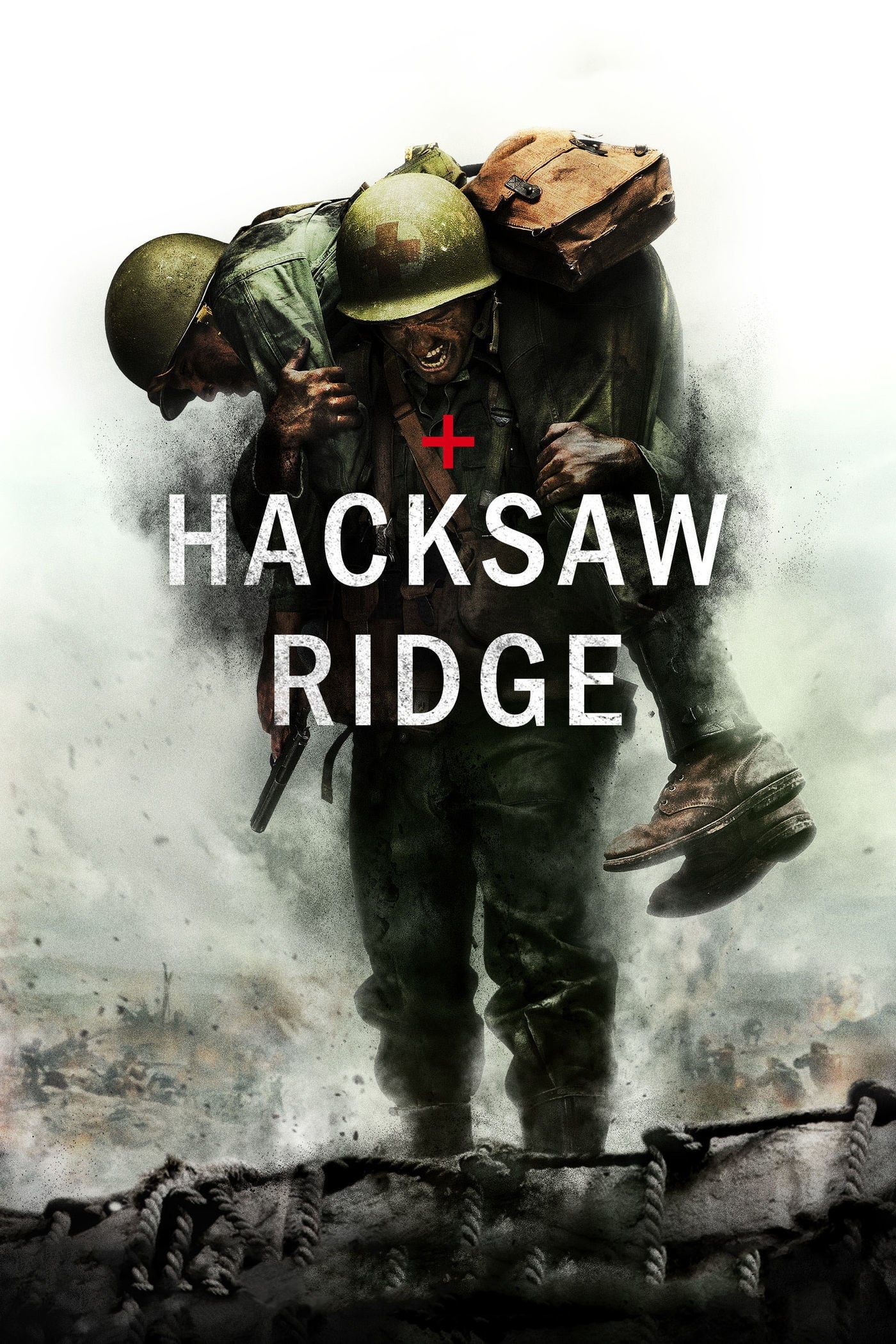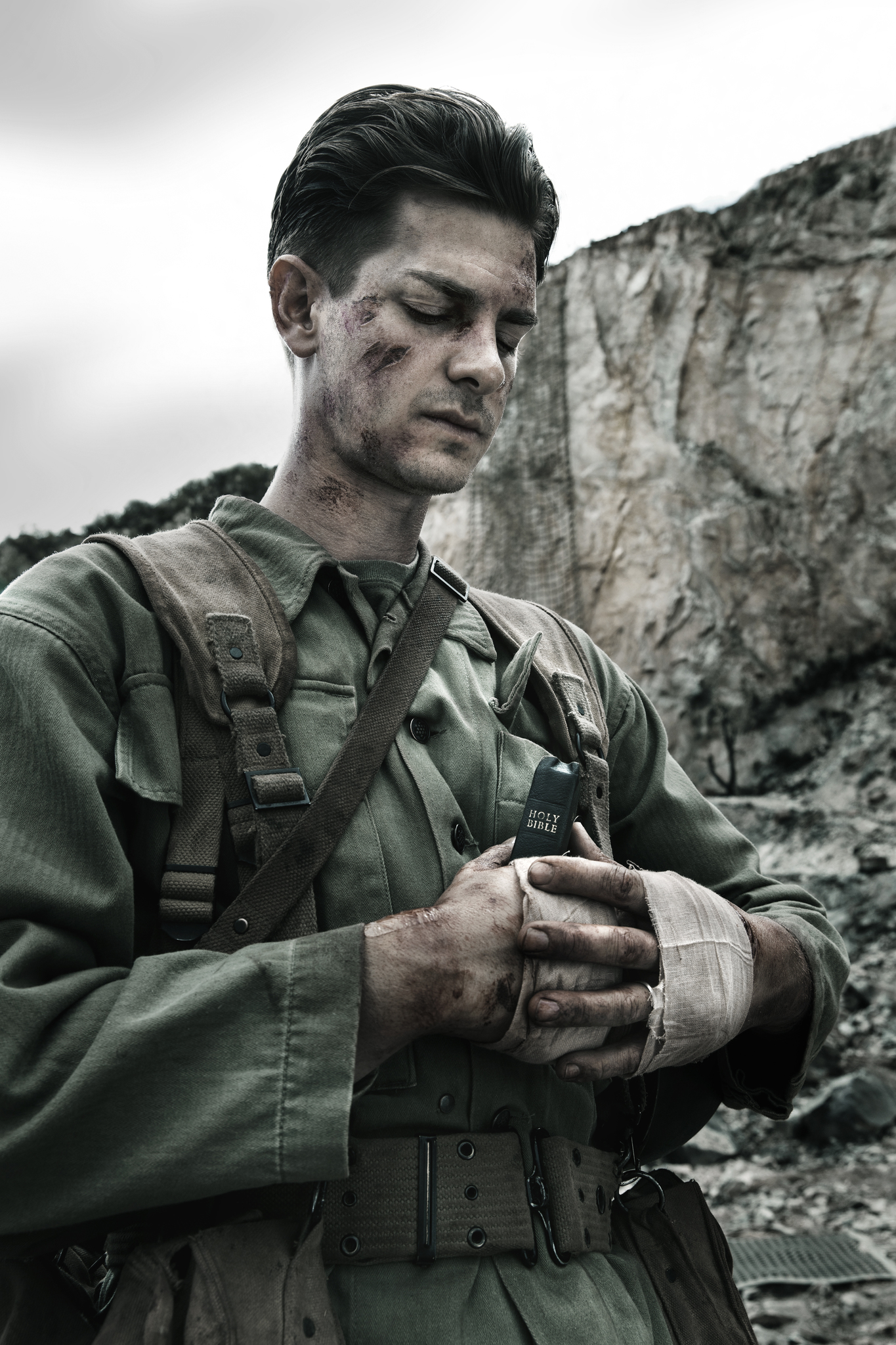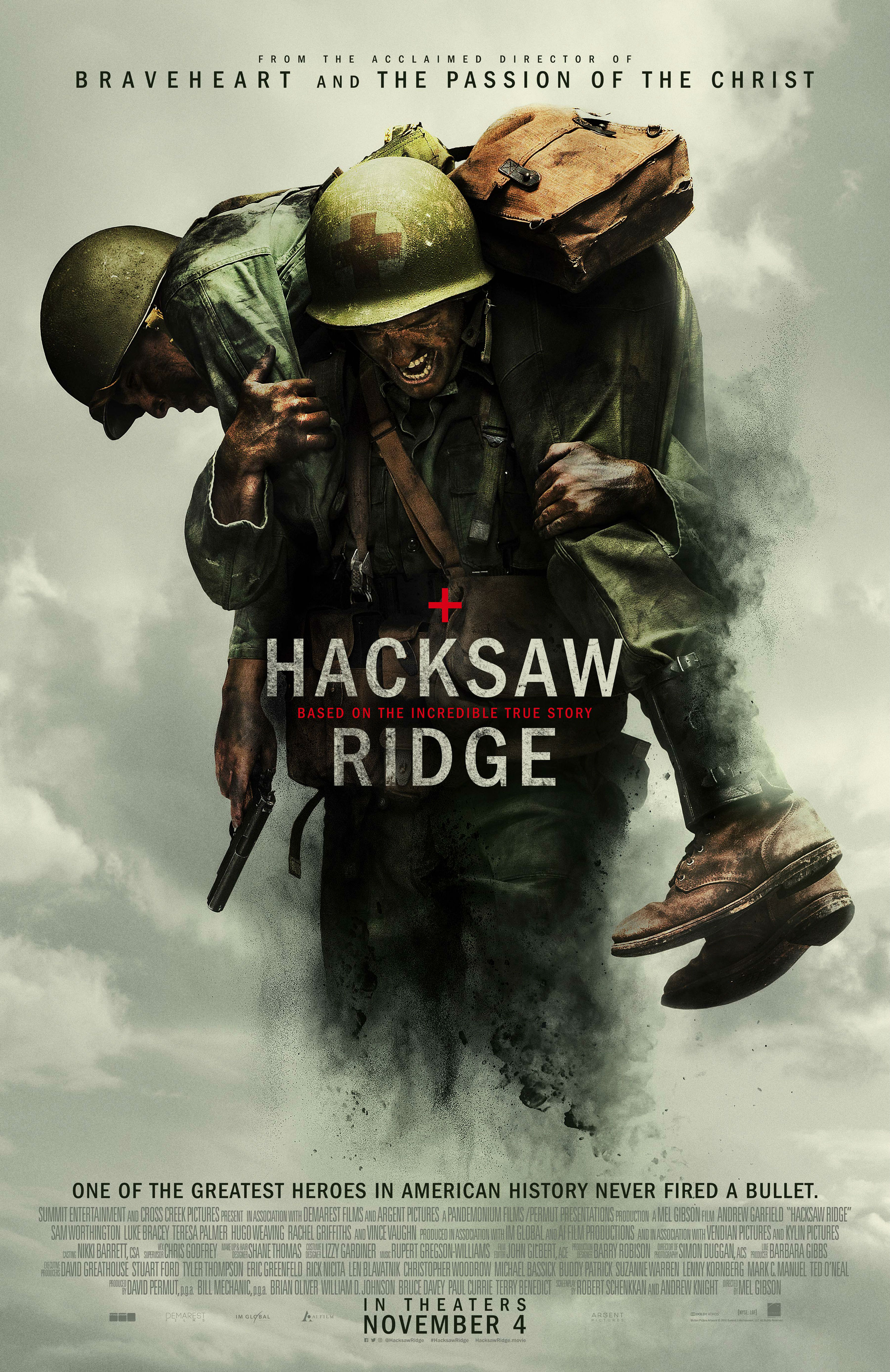Hacksaw Ridge: The True Story Of An Unlikely Hero
What is the significance of the movie "Hacksaw Ridge"?
Released in 2016, "Hacksaw Ridge" is a biographical war film that tells the incredible true story of Desmond Doss, an American medic who served during World War II and became the first conscientious objector to receive the Medal of Honor.
The film's title, "Hacksaw Ridge," refers to the Battle of Okinawa, one of the bloodiest battles of the Pacific War. Doss was a member of the 77th Infantry Division, which was assigned to capture a strategically important ridge line known as Hacksaw Ridge. Despite being unarmed and facing intense enemy fire, Doss risked his own life to save the lives of dozens of his fellow soldiers.
- Who Is Tameka Foster
- The Diamond Of The Sea
- Road Closures In The Houston Area
- Kroger Xmas Day Hours
- Sign For June 24
"Hacksaw Ridge" is a powerful and inspiring film that sheds light on the horrors of war and the extraordinary courage of one man. It is a testament to the power of faith and the importance of standing up for what you believe in.
The film has been praised for its realistic and unflinching depiction of combat, as well as its strong performances and emotional storytelling. It has received numerous awards, including two Academy Awards and three Golden Globe Awards.
Movie Hacksaw Ridge
An exploration of the essential aspects of the movie Hacksaw Ridge, a biographical war film released in 2016.
- Joe Rogan Wife Ufc
- Coach Freeman Wife
- Rice University Established
- June 20 Astrological Sign
- Marie Temara Net Worth
- Historical significance: Depicts the true story of Desmond Doss, a conscientious objector who became the first to receive the Medal of Honor.
- Warfare depiction: Offers a realistic and unflinching portrayal of the horrors of combat during the Battle of Okinawa.
- Character study: Explores the extraordinary courage and faith of Desmond Doss, highlighting the power of standing up for one's beliefs.
- Cinematic achievement: Recognized for its powerful performances, emotional storytelling, and technical excellence, earning numerous awards.
- Cultural impact: Sheds light on the often-overlooked role of medics in war, honoring their bravery and sacrifice.
These aspects collectively contribute to the film's significance as a powerful and inspiring story about courage, faith, and the human spirit in the face of adversity. The film serves as a tribute to Desmond Doss's legacy and a reminder of the extraordinary sacrifices made by those who serve in the military.
Personal Details and Bio Data of Desmond Doss
| Name: | Desmond Thomas Doss |
|---|---|
| Birth: | February 7, 1919, Lynchburg, Virginia, U.S. |
| Death: | March 23, 2006, Piedmont, Alabama, U.S. |
| Military Service: | United States Army, 77th Infantry Division, 307th Infantry Regiment |
| Awards: | Medal of Honor, Bronze Star Medal, Purple Heart |
Historical significance
The historical significance of "Hacksaw Ridge" lies in its portrayal of the true story of Desmond Doss, a conscientious objector who became the first to receive the Medal of Honor. Doss was a Seventh-day Adventist who refused to carry a weapon or kill, even in combat. Despite facing prejudice and ridicule from his fellow soldiers, Doss remained steadfast in his beliefs and served as a medic, saving the lives of dozens of his comrades during the Battle of Okinawa.
The film's depiction of Doss's story is both accurate and respectful, and it sheds light on the often-overlooked role of medics in war. Doss's courage and compassion are an inspiration to us all, and his story reminds us that even in the darkest of times, there is always hope.
The historical significance of "Hacksaw Ridge" is also important because it helps us to understand the complexities of war. The film does not shy away from the horrors of combat, but it also shows us the humanity and resilience of the human spirit. "Hacksaw Ridge" is a powerful reminder that even in the midst of war, there is always hope for peace.
Warfare depiction
The film "Hacksaw Ridge" offers a realistic and unflinching portrayal of the horrors of combat during the Battle of Okinawa. This is evident in several key aspects of the film:
- Graphic violence: The film does not shy away from depicting the graphic violence of war. We see soldiers being shot, stabbed, and burned alive. This violence is not gratuitous, but it serves to convey the true horrors of combat.
- Psychological toll: The film also shows the psychological toll that war takes on soldiers. We see soldiers suffering from PTSD, shell shock, and other mental health issues. This is a reminder that war is not just a physical battle, but also a mental one.
- Moral ambiguity: The film does not offer easy answers to the moral questions that war raises. We see soldiers committing both heroic and horrific acts. This moral ambiguity is a reflection of the complexity of war.
The realistic and unflinching portrayal of warfare in "Hacksaw Ridge" is essential to the film's overall message. The film is not a glorification of war, but a condemnation of its horrors. It is a powerful reminder of the sacrifices that soldiers make, and the importance of peace.
Character study
The film "Hacksaw Ridge" explores the extraordinary courage and faith of Desmond Doss, a conscientious objector who refused to carry a weapon or kill, even in combat. Despite facing prejudice and ridicule from his fellow soldiers, Doss remained steadfast in his beliefs and served as a medic, saving the lives of dozens of his comrades during the Battle of Okinawa.
- Conviction and unwavering faith: Doss's unwavering faith in God gave him the strength and determination to stand up for his beliefs, even when it meant facing ridicule and opposition.
- Moral courage: Doss's moral courage is evident in his willingness to put his own life at risk to save others, even those who had mocked and mistreated him.
- Compassion and empathy: Doss's compassion and empathy extended to everyone he encountered, regardless of their background or beliefs.
- Power of non-violence: Doss's story is a powerful example of the power of non-violence. He showed that it is possible to make a difference in the world without resorting to violence.
The character study of Desmond Doss in "Hacksaw Ridge" is a powerful and inspiring reminder of the extraordinary courage and faith of one man. Doss's story is a testament to the power of standing up for one's beliefs, even in the face of adversity.
Cinematic achievement
The cinematic achievements of "Hacksaw Ridge" are a testament to the film's high quality and its impact on audiences worldwide. The film's powerful performances, emotional storytelling, and technical excellence have been recognized through numerous awards, including two Academy Awards and three Golden Globe Awards.
- Powerful performances: The actors in "Hacksaw Ridge" deliver powerful and emotionally charged performances that bring the characters to life. Andrew Garfield's portrayal of Desmond Doss is particularly noteworthy, capturing the medic's unwavering faith and determination.
- Emotional storytelling: The film's story is emotionally resonant and deeply moving. Director Mel Gibson does an excellent job of conveying the horrors of war while also highlighting the courage and compassion of the soldiers.
- Technical excellence: "Hacksaw Ridge" is a technical marvel, with stunning cinematography, editing, and sound design. The film's realistic depiction of combat is particularly impressive, and it helps to immerse the viewer in the story.
The cinematic achievements of "Hacksaw Ridge" contribute to the film's overall impact and message. The film's powerful performances, emotional storytelling, and technical excellence help to create a deeply moving and thought-provoking experience for audiences. These achievements also underscore the film's importance as a significant contribution to the war film genre.
Cultural impact
The film "Hacksaw Ridge" has a significant cultural impact as it sheds light on the often-overlooked role of medics in war, honoring their bravery and sacrifice. Medic roles in war often include:
- Providing medical care under fire: Medics risk their own lives to provide medical care to wounded soldiers in the midst of combat, often under heavy fire.
- Evacuating wounded soldiers: Medics evacuate wounded soldiers from the battlefield to safety, often under difficult and dangerous conditions.
- Providing psychological support: Medics also provide psychological support to soldiers who have experienced trauma, helping them to cope with the horrors of war.
The film "Hacksaw Ridge" highlights the bravery and sacrifice of medics through the character of Desmond Doss. Doss was a conscientious objector who refused to carry a weapon, but he served as a medic and saved the lives of dozens of his comrades during the Battle of Okinawa. Doss's story is a powerful reminder of the important role that medics play in war, and it helps to raise awareness of their bravery and sacrifice.
Frequently Asked Questions about the Movie "Hacksaw Ridge"
The movie "Hacksaw Ridge" is a powerful and inspiring true story about Desmond Doss, a conscientious objector who became the first medic to receive the Medal of Honor. The film has received critical acclaim for its realistic depiction of combat, its strong performances, and its emotional storytelling.
Question 1: Is "Hacksaw Ridge" a true story?
Yes, "Hacksaw Ridge" is based on the true story of Desmond Doss, a Seventh-day Adventist who refused to carry a weapon or kill, even in combat. Doss served as a medic during the Battle of Okinawa and saved the lives of dozens of his comrades.
Question 2: Who directed "Hacksaw Ridge"?
"Hacksaw Ridge" was directed by Mel Gibson.
Question 3: Who played Desmond Doss in "Hacksaw Ridge"?
Andrew Garfield played Desmond Doss in "Hacksaw Ridge".
Question 4: What awards did "Hacksaw Ridge" win?
"Hacksaw Ridge" won two Academy Awards (Best Film Editing and Best Sound Mixing) and three Golden Globe Awards (Best Motion Picture Drama, Best Director, and Best Actor Drama for Andrew Garfield).
Question 5: Why is "Hacksaw Ridge" rated R?
"Hacksaw Ridge" is rated R for graphic violence and strong language.
Question 6: What is the message of "Hacksaw Ridge"?
The message of "Hacksaw Ridge" is that courage and compassion can triumph even in the darkest of times. Desmond Doss's story is a reminder that we can all make a difference in the world, even if we don't carry a weapon.
The film "Hacksaw Ridge" is a powerful and moving tribute to Desmond Doss and all the brave men and women who have served in the military. It is a film that will stay with you long after the credits have rolled.
Transition to the next article section:
The historical significance, cinematic achievements, and cultural impact of "Hacksaw Ridge" are just a few of the reasons why it is such an important film. It is a film that deserves to be seen by everyone.
Movie Review
Hacksaw Ridge is a powerful and inspiring true story about Desmond Doss, a conscientious objector who became the first medic to receive the Medal of Honor. The film sheds light on the often-overlooked role of medics in war, honoring their bravery and sacrifice. Hacksaw Ridge is a film that will stay with you long after the credits have rolled.
The film's realistic depiction of combat, strong performances, and emotional storytelling make it a must-see for anyone interested in war films, historical dramas, or inspiring stories of courage and compassion. Hacksaw Ridge is a film that will stay with you long after the credits have rolled, and it is a film that everyone should see.
Article Recommendations



Detail Author:
- Name : Lauriane Jones
- Username : frida87
- Email : jhickle@hotmail.com
- Birthdate : 2000-02-12
- Address : 30260 Monroe Camp Labadieborough, MO 07202-5051
- Phone : 678.241.4399
- Company : Vandervort, Brekke and Little
- Job : Terrazzo Workes and Finisher
- Bio : Illum et repellat hic qui ut quis blanditiis. Consequatur tempore quos sequi quia ipsam. Necessitatibus recusandae nostrum aliquid commodi.
Socials
instagram:
- url : https://instagram.com/gleason1988
- username : gleason1988
- bio : Ut quos dolores error repellat omnis mollitia numquam. Ea cupiditate sunt accusantium quo earum ea.
- followers : 4956
- following : 811
twitter:
- url : https://twitter.com/delta3656
- username : delta3656
- bio : Consequuntur ipsa sunt eaque veritatis et. Commodi deleniti voluptate enim eos fugit earum beatae. Amet maiores in suscipit est eveniet omnis qui.
- followers : 6349
- following : 1841
tiktok:
- url : https://tiktok.com/@gleason1980
- username : gleason1980
- bio : Eius eos sunt perferendis labore deserunt.
- followers : 3816
- following : 2586
facebook:
- url : https://facebook.com/delta5256
- username : delta5256
- bio : Soluta vel possimus soluta labore. Cum laboriosam ipsum quasi libero maiores.
- followers : 456
- following : 54
linkedin:
- url : https://linkedin.com/in/delta.gleason
- username : delta.gleason
- bio : Et soluta numquam et autem suscipit eum dolor.
- followers : 5079
- following : 1893